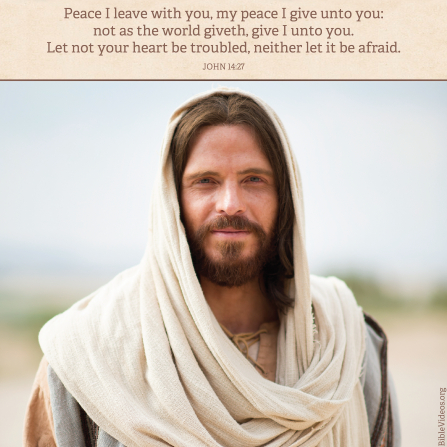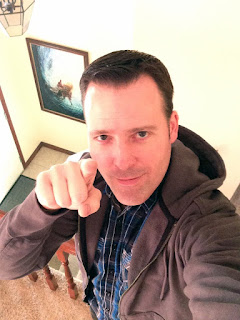I received a very personal invitation. And of course now I’m going to blatantly share it publicly, not to brag or get pats on the back. It’s just been too sweet an experience to resist sharing, a little like Lehi's desire to share the fruit of the Tree of Life. It came to me as a prompting that sort of solidified over the course of the last six months. Off and on for many years I've tried to understand better how I can experience the Atonement more fully in my life and apply it more effectively to my exact situation. I’ll try to express it here in words, although it really has to be experienced. Hopefully this can be helpful for someone else as it has been for me.
The invitation I received was an invitation to visit with Jesus Christ in person – not so much in person, but in my mind, to visualize or picture myself visiting Him. The purpose was to simply draw nearer to Him, to spend some time there, to somehow feel and learn more directly from Him, spirit to Spirit, to experience my self more directly in His presence, and to feel more ready for the day when the actual meeting occurs.
As I said, it took me some time to recognize and accept the invitation. Once I determined to make the visit, I found a still, quiet time, and I had to quiet the words in my mind and brush past familiar emotions – fear, frustration, discouragement, shame, embarrassment, sorrow, excitement, joy. I didn’t feel prepared at all, so I approached Him in the middle of my self-doubts and my doubt-doubts. My flawed logic and circular thinking patterns were completely exposed and didn’t matter. No words are exchanged, and none were needed. There were no significant gestures or contact, and I can’t say I even really saw Him there. I just went to be with Him, and He was there for me. And it was remarkable, profound, transforming, simple.
After the first visit, I’ve returned multiple times. I’ve visited Him when I was feeling happy and calm and when I wasn’t. Sometimes I pictured myself kneeling, or standing and turning toward Him, or rushing quickly to see Him, or crawling forward. I have also felt too undeserving, or ungrateful, or discouraged, or unworthy, or just too jumbled to even approach Him. Still His invitation is there, so in those times I allow Him to come visit me. And He does.
How could I possibly resist? He is the Source of Light and Truth, the embodiment of all Hope, of transcendent Love, of purifying Fire and empowering Grace, the Master Healer, the Life, and the Way! I love Him! All goodness emanates from Him. My emotions, desires, and thoughts are sorted, validated, redeemed, and settled.
Then I return, completely mortal, more or less my same self, imperfect still, and yet perfect enough, unworthy still and yet worthy enough, flawed and failing and sometimes flailing, and yet not flawed or failing or flailing enough that I can’t return again whenever I choose. I feel a little more peace, a lot more hope, gratitude, reverence. Normal life continues. And yet in those moments or minutes, I feel transformed through and through.
We each learn differently and have different needs and experiences, so it may not happen for others exactly as I’ve described. Even so, regardless of who or where we think we are, I believe we have a perfect Savior and Redeemer whose invitation is always there for each of us to draw near Him in our hearts and to know and trust Him better.


